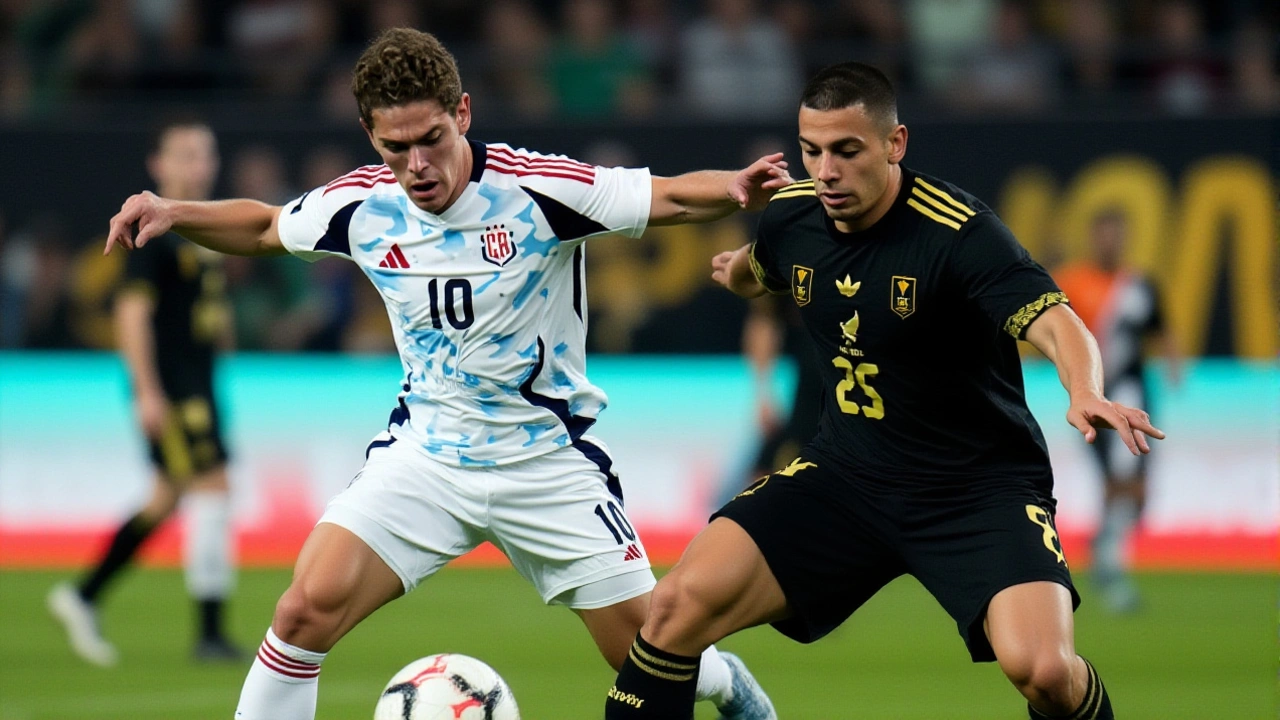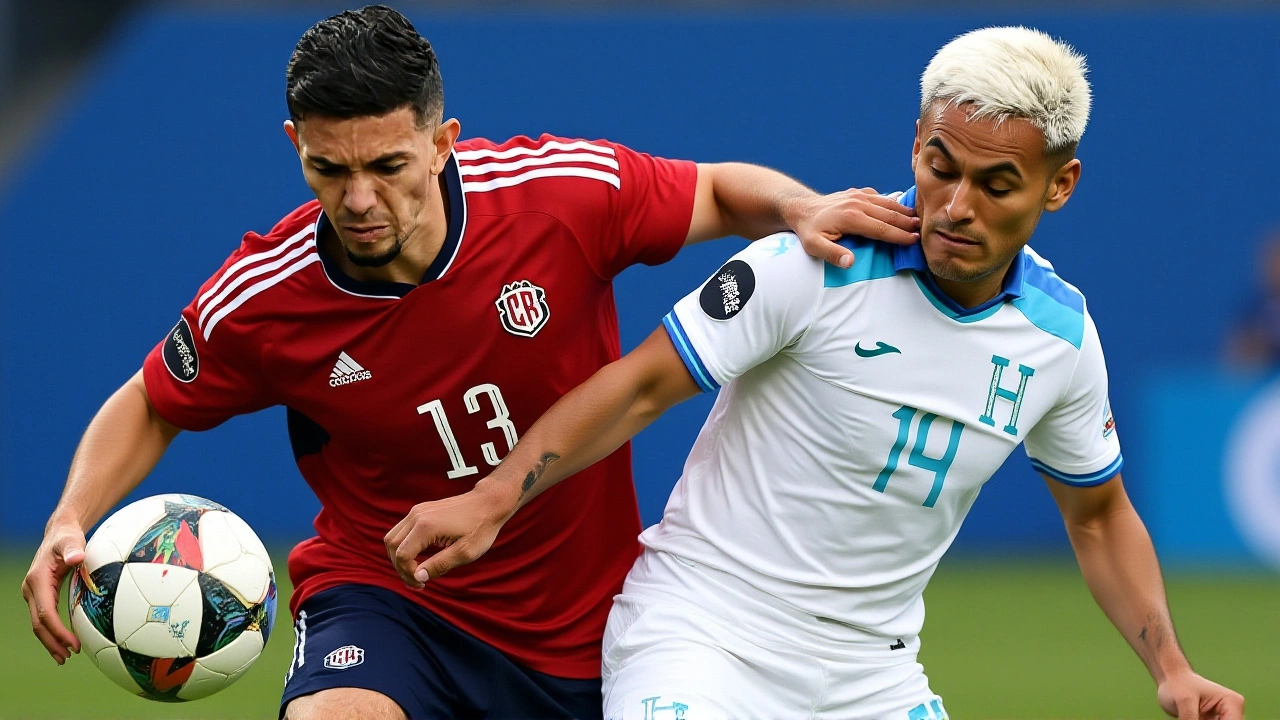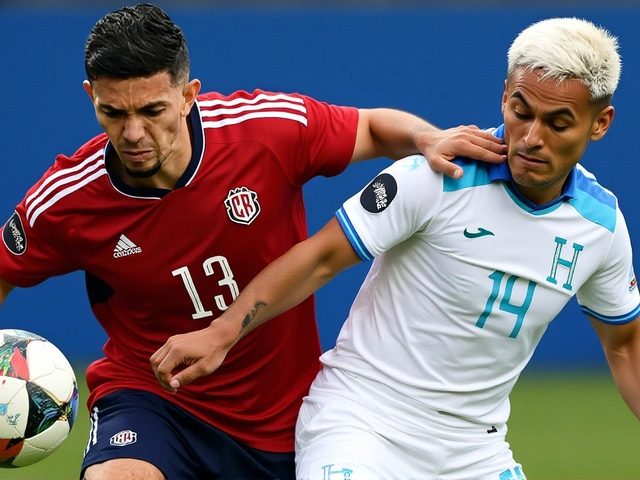A tense 0-0 stalemate at Estadio Nacional de Costa Rica on Tuesday, November 18, 2025, didn’t just end a match—it buried two nations’ hopes. Costa Rica and Honduras both exited the 2026 FIFA World Cup Qualifying San José campaign without a ticket to the tournament, leaving fans stunned and veterans like Keylor Navas staring at an unexpected retirement from international duty.
When the Dream Died
The final whistle blew at 90+10’ after a match that felt less like football and more like a funeral procession for two proud footballing identities. Neither side could break through. Keylor Navas, 38, made a diving stop in the 89th minute that could’ve been the save of his career—if only it had meant something more. Meanwhile, Luis Lopez Menjivar, Honduras’s goalkeeper, was carried off briefly in the 26th minute after a brutal collision but returned to make another heroic save in the 73rd. This wasn’t just a game. It was the last time these players would wear their national jerseys in a meaningful contest.
For Costa Rica, the result was devastating. After qualifying for the last three World Cups—2014, 2018, and 2022—they now sit outside the top two for the first time since 2010. Their 1-4-1 record (7 points, +2 goal difference) was not bad on paper. But in a group where every point was gold, it wasn’t enough. Honduras, with 9 points from 2 wins, 3 draws, and 1 loss, finished second. But even that wasn’t enough to guarantee a spot. Only the top two qualify directly. And the top two? Haiti and... well, that’s where it gets complicated.
The Haiti Paradox
Haiti finished first with 11 points—three wins, two draws, one loss—and tied Honduras on goal difference (+3). That meant CONCACAF’s tiebreaker rules kicked in: head-to-head results, then goals scored, then away goals. Haiti won both matches against Honduras (1-0 in Port-au-Prince, 2-1 in San José), giving them the edge. But here’s the twist: Haiti hasn’t played a home qualifier in four years. Since 2021, violence has turned 85% of Port-au-Prince into a no-go zone controlled by armed gangs. All their "home" matches were played in neutral venues—Trinidad, the Dominican Republic, even the U.S. They qualified without ever stepping on their own pitch.
It’s a brutal irony. A team that barely has a home is going to the World Cup. Two teams that have played in front of roaring crowds for decades—fans who’ve seen them reach quarterfinals, who’ve danced in the streets after wins over Mexico and the U.S.—are now watching from their living rooms.

The End of an Era
For Costa Rica, this isn’t just a missed tournament. It’s the collapse of a generation. Navas, the captain who saved penalties in Brazil 2014 and kept the dream alive in Russia 2018, is now 38 and unlikely to play again. Midfielder Celso Borges, 37, the engine of their midfield for over a decade, was subbed off in the 59th minute, his last international touch likely coming in a 0-0 draw. The team that once had the most organized, disciplined defense in CONCACAF now looks fragmented. Their defense held strong in this match—only two shots on target all game—but they didn’t create enough.
Meanwhile, Honduras’s 2-3-1 record looks respectable until you realize they drew against Nicaragua and lost to Haiti. Their path to qualification was messy, not majestic. Still, they’ll get to compete in the World Cup. For now, that’s a relief. For Costa Rica? It’s a reckoning.
What Happens Now?
With no intercontinental playoff spot available to third-place teams in this CONCACAF group, both nations are officially out. No second chances. No playoffs. No redemption arc. The 2026 World Cup in Canada, Mexico, and the United States will go on without them. And the fallout will be immediate: coaching changes, youth revamps, and likely a deep soul-searching within both federations.
Costa Rica’s federation has already signaled it will accelerate its youth development pipeline. But rebuilding takes time—and money. The country’s football infrastructure has suffered from underinvestment since the 2014 high. Honduras, meanwhile, may look to bring back former coach Reinaldo Rueda, who led them to the 2010 World Cup. But even that’s uncertain. The players are aging. The fans are disillusioned.

The Bigger Picture
This isn’t just about two teams missing out. It’s about how CONCACAF’s qualification system is changing. The new format—six matches per team, only two direct spots—has made it brutally hard for mid-tier teams to climb. In the past, a 1-4-1 record might’ve been enough. Now, it’s a death sentence. And the rise of Haiti, a nation with no stable stadiums and no security, proves that football’s future in this region won’t be dominated by tradition, but by resilience.
It’s a new world. And for the first time in 16 years, Costa Rica won’t be in it.
Frequently Asked Questions
Why didn’t Costa Rica qualify despite having a solid defensive record?
Costa Rica’s defense held firm, but their attack was stagnant—they scored only 4 goals in six matches. In a group where Haiti scored 9 and Honduras 7, Costa Rica’s inability to convert chances—especially against Nicaragua and Haiti—proved fatal. Even a single extra goal could’ve pushed them into the playoff spot.
How did Haiti qualify without playing at home?
Due to gang violence controlling 85% of Port-au-Prince since 2021, Haiti has played all its "home" qualifiers at neutral venues in the Caribbean and North America. Despite this, they won three group matches away from home, including a 2-1 win over Honduras in San José. Their resilience and tactical discipline compensated for the lack of home support.
What does this mean for Keylor Navas’s international career?
At 38, Navas has likely played his final match for Costa Rica. He’s been the team’s emotional anchor since 2010, and his final save in the 89th minute was a fitting, heartbreaking capstone. While he may continue playing club football, his international legacy now ends with an unfulfilled dream.
Will Honduras make it to the 2026 World Cup?
Yes. Honduras finished second in the group and qualifies directly for the 2026 World Cup. Despite their inconsistent performances, they secured enough points and won the head-to-head tiebreaker against Haiti in the second leg, which ultimately gave them the second automatic spot after Haiti edged them on overall group tiebreakers.
What’s next for Costa Rican football?
Costa Rica’s federation plans to fast-track youth development, focusing on players born after 2005. Coaches like Hernán Medford and Óscar Ramírez are being considered for the national team role. But without a World Cup to rally around, funding and fan interest may decline, making the rebuild harder than ever.
Why was there a red card in the 94th minute that wasn’t documented?
The red card to a Costa Rican player in the 94th minute was not officially recorded in match reports, suggesting a possible administrative error or unconfirmed incident. Given the emotional tension, it’s likely a last-ditch foul or protest, but without official confirmation, its impact remains unclear.






Archer Elmsley
I am a seasoned journalist with over two decades of experience writing about daily news in the United States. My passion for uncovering the truth and presenting it in an engaging manner drives my work every day. I believe in the power of information and strive to keep my readers informed with well-researched articles. When I'm not working, I enjoy exploring the great outdoors and capturing moments through my lens.
view all posts